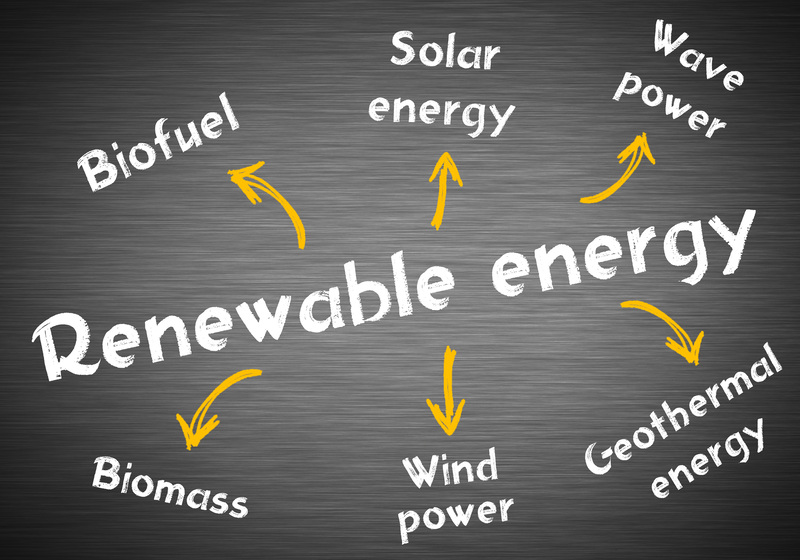Becoming an Eco Office: Tips for Significant Waste Reduction
In today's environmentally-conscious climate, more businesses are striving to build eco offices that prioritize sustainability and significant waste reduction. As workplaces become more aware of their environmental footprint, transitioning into a green office isn't just a trend--it's a necessity. This comprehensive guide showcases numerous strategies, tips, and actionable steps that help in transforming any workspace into a sustainable and eco-friendly office environment.

Understanding the Importance of Eco-Friendly Offices
Creating a sustainable office environment provides significant benefits. Not only does it reduce your company's environmental impact, but it can also save money, improve employee morale, and enhance your brand's reputation. Below, we delve into why making these changes is crucial:
- Reduction in operational costs - Eco offices conserve resources and generate less waste, resulting in lower utility bills and material expenses.
- Boosted brand image - Customers and partners often prefer to work with companies that demonstrate environmental responsibility.
- Regulatory compliance - Eco-friendly practices help meet government and industry regulations concerning sustainability.
- Improved employee well-being - Clean, green offices foster productivity and staff satisfaction.
By adopting office waste reduction strategies, organizations actively contribute to the global movement of environmental stewardship.
Step-by-Step Guide: How to Become an Eco Office
1. Conduct a Waste Audit
The first step toward significant waste reduction is understanding where you currently stand. Perform a thorough waste audit by analyzing what types of waste your office creates--from paper and plastic to food and electronic waste.
- Assess waste areas: Monitor breakrooms, printer stations, and communal kitchens.
- Categorize waste: Identify recyclable, compostable, and landfill-bound materials.
- Analyze findings: Quantify the most significant and frequently discarded items.
This information forms the foundation of your sustainable office practices and highlights the most effective targets for waste reduction.
2. Create a Green Office Policy
A formal eco office policy demonstrates your commitment to the environment and provides clear expectations. Your policy should cover:
- Waste reduction and recycling goals
- Energy conservation methods
- Sustainable purchasing standards
- Employee roles in eco-friendly initiatives
Display this policy publically to engage staff and visitors in your green office mission.
3. Tackle Paper Waste
Paper remains one of the most significant contributors to office waste. To effectively reduce paper usage:
- Go digital: Encourage digital communication and cloud storage instead of printed documents.
- Default to double-sided printing: Configure printers for duplex printing, saving sheets with every job.
- Use recycled paper: If printing is necessary, select 100% post-consumer recycled paper products.
- Maintain a "think before you print" culture to foster mindfulness among employees.
4. Reduce Single-Use Plastics and Packaging
Single-use plastics are a major environmental concern. In your journey toward becoming an eco-friendly office:
- Replace plastic cups, straws, and cutlery with reusable or compostable alternatives in office kitchens and events.
- Buy in bulk: Opt for bulk snacks and supplies to minimize packaging waste.
- Engage vendors: Request environmentally friendly packaging from suppliers whenever possible.
- Set up water stations to discourage bottled water purchases.
5. Embrace Efficient Recycling and Composting
Proper recycling and composting are crucial pillars of any eco-conscious office.
- Provide clearly labeled bins: Make separation of recyclables and organics simple and obvious for all staff.
- Educate employees: Train staff on local recycling rules and composting practices, including what can and cannot go in each bin.
- Partner with local recycling and composting programs to ensure effective waste processing.
Make recycling bins as accessible as general waste to encourage responsible disposal habits.
6. Minimize E-Waste
Offices frequently generate considerable amounts of electronic waste (e-waste) from outdated devices, batteries, and accessories.
- Donate or sell unused electronics to schools or nonprofits instead of throwing them away.
- Recycle e-waste responsibly: Use certified e-waste recycling companies that ensure safe disposal and material recovery.
- Implement device-sharing policies: Avoid over-purchasing by sharing devices like laptops and tablets among staff.
- Prolong product lifespans by investing in high-quality, repairable technology.
7. Green Procurement Strategies
Transitioning to a green office means reconsidering your purchasing habits.
- Source sustainable office supplies: Choose products made from recycled materials and with minimal packaging.
- Select energy-efficient appliances: Switch to LED lighting, Energy Star-rated equipment, and motion sensors.
- Support eco-friendly brands: Partner with vendors who prioritize ethical and environmentally sound practices.
- Consider renting or leasing equipment to reduce resource consumption.
Engaging Employees in Eco Initiatives
Foster a Green Office Culture
Staff participation is key to successful waste reduction in the workplace. Encourage employees to embrace eco-friendly office habits by:
- Hosting green challenges or competitions
- Offering incentives and recognition for sustainable actions
- Promoting carpooling, cycling, or public transit for commutes
- Organizing regular eco office workshops and training sessions
- Creating a green team to champion eco-friendly projects
Communicate Progress and Celebrate Success
Regular updates on your eco office achievements help maintain momentum.
- Share goals and results: Use emails, noticeboards, or digital dashboards to keep everyone informed.
- Celebrate milestones: Recognize when significant waste reduction goals are met.
- Encourage staff feedback and suggestions to continuously refine your green strategies.
Innovative Technologies for Waste Reduction
Leveraging technology can bring your sustainable office goals to the next level. Consider integrating:
- Smart waste bins: Bins with sensors and fill-level indicators, reducing unnecessary disposal pickups.
- Digital workflow systems: Minimize paper by digitizing approvals, contracts, and records.
- Composting machines: Compact devices that process organic waste internally, ideal for urban offices.
- Environmental tracking software to monitor energy, water, and waste metrics in real time.
These innovations not only curb waste but also provide valuable data for measuring the effectiveness of your eco initiatives.
Extending Sustainability Beyond the Office
Support Remote Work and Flexible Schedules
Remote and hybrid work arrangements drastically reduce commuting-related emissions and office resource consumption.
- Encourage telecommuting to lower energy use in the main office.
- Share green work-from-home tips to extend sustainability culture.
- Adopt cloud-based solutions for seamless and eco-friendly collaboration.
Green Meetings and Events
From team meetings to large conferences, business gatherings can generate substantial waste.
- Go paperless: Share agendas and notes digitally.
- Use reusable signage and name badges instead of disposables.
- Source local, sustainable catering options with low-waste packaging.
- Encourage virtual participation to minimize travel and venue resource use.

Measuring Success and Setting Future Goals
Continuous improvement is vital for sustainable office operations. Use these tips to ensure lasting impact:
- Track key performance indicators (KPIs): Monitor waste streams, recycling rates, and cost savings.
- Conduct regular audits: Evaluate progress and identify new areas for improvement.
- Set ambitious yet attainable targets for ongoing waste reduction and resource conservation.
- Publicly report progress to stakeholders and celebrate your journey towards a zero-waste office.
Conclusion: Leading the Way as an Eco Office
Becoming an eco office and achieving significant waste reduction is an ongoing journey that demands commitment, creativity, and collaboration. By implementing these actionable strategies--from comprehensive waste audits to sustainable procurement and staff engagement--your organization can build a workplace that not only benefits the environment but also promotes efficiency, savings, and employee satisfaction.
Start small, think big, and move forward. Each sustainable action contributes to a cleaner, greener future for your business and the world. Make your eco-friendly office transformation today and inspire others along the way!
Ready to take action?
Embrace these practices now and let your office become a shining example of sustainability in your industry.